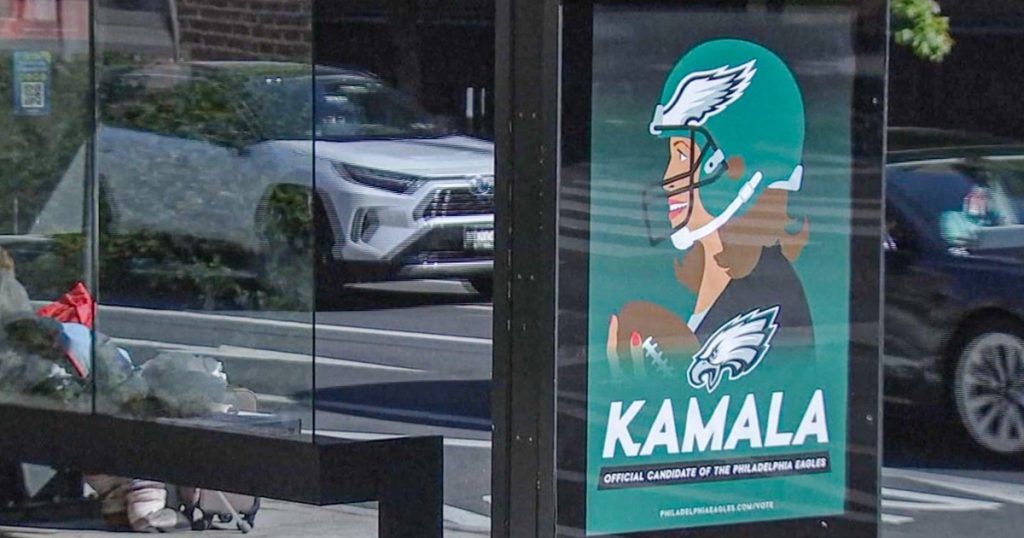A series of fake political ads featuring Vice President Kamala Harris in a Philadelphia Eagles uniform holding a football appeared on the streets of Philadelphia, sparking confusion and controversy. The NFL team quickly confirmed that the ads were indeed fake and stated that they were working to have them taken down. NBC Philadelphia reported that at least six of these counterfeit ads were spotted around the city before being removed. The ads included a link to a real but nonpartisan website providing information on important election dates and resources for voter registration.
Intersection Media, the company that owns the bus stop advertising where the ads were found, released a statement claiming that the ads were not paid for but were instead forcibly placed into the ad boxes. The President and CEO of Intersection Media, Scott Goldsmith, explained that the ad boxes are typically locked to prevent vandalism, but individuals were able to break in and insert the unauthorized material. In response to the situation, Intersection staff were working to remove the fake ads as quickly as possible. A city spokesperson confirmed that physical break-ins occurred to place the posters in the ad space.
The incident of fake political ads appearing in Philadelphia is just one example of the proliferation of false information and scams in the digital age. Online platforms have been used to spread deepfake images and misinformation, with a deepfake of Kamala Harris going viral in July and AI-generated images of Donald Trump causing confusion earlier in the year. The spread of misinformation online has become a growing concern, as it can influence public opinion and sway political narratives. Kamala Harris’ campaign did not provide an immediate response to requests for comment on the situation.
The swift action taken by the Philadelphia Eagles and Intersection Media to address the fake ads reflects a commitment to preventing the spread of false information and protecting the integrity of political campaigns. By removing the unauthorized materials and clarifying that they were not involved in the creation or posting of the ads, both organizations sought to mitigate any potential harm caused by the misinformation. The incident highlights the need for vigilance and oversight in combating fake news and ensuring that accurate and reliable information is accessible to the public.
Moving forward, it will be important for organizations, government agencies, and tech companies to work together to address the growing threat of fake news and misinformation. Efforts to increase transparency, verify the authenticity of information, and educate the public on how to discern fact from fiction will be crucial in combating the spread of false information. By remaining vigilant and taking proactive steps to counteract fake news, society can better protect the integrity of democratic processes and public discourse. The incident in Philadelphia serves as a reminder of the challenges posed by disinformation in the modern digital landscape and the importance of maintaining trust and reliability in the information shared with the public.


